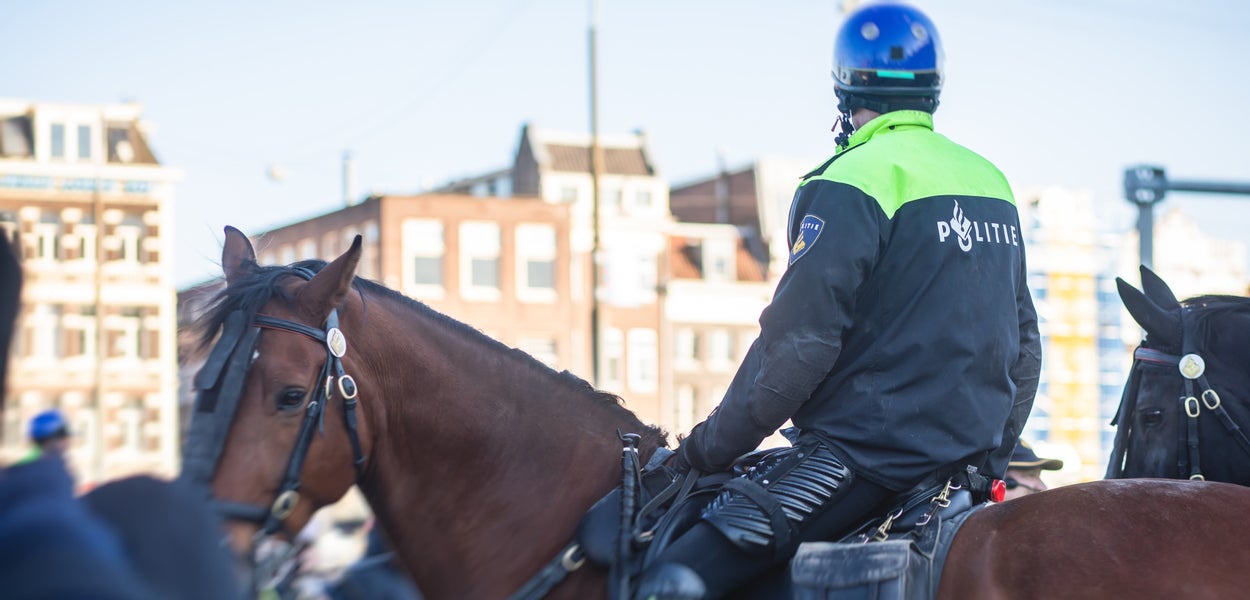Knowledge centre for societal security issues

Discover how the Secure Societies impact coalition addresses societal security challenges with multidisciplinary research and innovative solutions.
Knowledge centre for societal security issues
Previously, they introduced themselves simply as professors of Psychology and Social Change and Conflict. However, since becoming coalition leaders of the Secure Societies impact coalition, Ellen Giebels (UT) and Jacquelien van Stekelenburg (VU) often add “Coalition Lead” to their titles. Still, they prefer to position themselves as part of an amazing team.
"Safety is a broad and encompassing subject with many stakeholders involved. Our dream is to become the centre of expertise on societal security issues. Locally, regionally, nationally and ultimately internationally. There is a huge demand for knowledge, tools and exchange in the field of safety. With our main themes of polarisation, undermining and crisis management, we aim to meet this demand."
Central police
As a coalition, we are also part of the safety ecosystem. At the heart of that system is the police, where everything related to safety comes together. That’s why we’ve designated the police as our preferred partner. The police face a significant challenge in tackling security issues in an integrated and sustainable way, based on a long-term vision and strategy. This aligns perfectly with our ambition and working methods. We have great confidence in this collaboration. Through co-creation, we will develop, collect, exchange and make knowledge applicable within our research and education.
Multidisciplinary
What makes us strong and distinctive is the wonderful combination of diverse knowledge, scientific fields, and disciplinary and methodological aspects. Societal security issues are highly complex, and a monodisciplinary approach is no longer sufficient. At the UT, the social sciences and technological sciences are strongly intertwined. Social science research is structured around technology as a research topic, such as the acceptance and adoption of new technologies in the workplace. Technology is also used as a communication medium, for instance, with regard to the digital divide, and as a methodology to better understand and influence (group) behaviour, for example, with virtual reality (VR).
A1 connection
VU Amsterdam has a much broader range of expertise in social sciences, such as anthropology and sociology. Moreover, VU Amsterdam has essential disciplines like law and criminology, which the UT lacks, while the UT boasts one of the strongest philosophy departments in the world. This is important because both legal and ethical frameworks are crucial. Together, we combine social, technical, legal, and ethical knowledge and expertise on societal security issues in our proposition. Another nice aspect is our A1 connection. The A1 links the urban agglomeration of Amsterdam with that of Twente, with Apeldoorn in the middle, home to the Police Academy. That can’t be a coincidence!
Valid and reliable
We are an impact coalition, and we aim to achieve that impact scientifically and socially in the fields of media, policy and social innovation. In the media, we want to become a strong, reliable and sought-after voice on safety, with particular focus on polarisation, crisis management and undermining. We want to enrich policies at the local, regional, and national levels with the latest knowledge and insights on security, making them applicable for practice. In social innovation, for example, VR techniques can be used to address conflicts or polarisation. The foundation of all this is that our scientific contribution is valid and reliable, beyond dispute.
Interesting combinations
The coalition began bottom-up, with a warm welcome to anyone who has something to contribute and is willing to invest time and energy in collaboration. In various sessions on themes like polarisation, crisis management and undermining, VU and UT experts got to know each other and their respective expertise. This quickly led to initial explorations and research. As coalition leaders, we’ve also been successful in seeking out interesting combinations of people and topics. Our search for figureheads for the coalition has also borne fruit. You’ll hear more about that in 2023.
Opportunities and possibilities
Within our coalition, we’ve found common ground in our no-nonsense approach and shared love for entrepreneurship. The smooth progress is certainly also due to the tireless efforts of our coordinators. Hats off to them! It’s also because of the enthousiasm and everyone’s mindset focused on opportunities and possibilities. Of course, there are areas for improvement. This mainly stems from the fact that you’re setting up a new form and structure as a coalition with two universities. Procedures, rules and agreements don’t always align, which leads to some bureaucracy. Fortunately, there’s hard work underway to establish governance for the coming years.
Anchoring our philosophy
We are ambitious and aim to conquer the world. At the same time, we know that success takes time. That’s why we focus on the long term and on increasingly anchoring our philosophy in the work we do and will do. Ideally, this would be in collaboration with colleagues from other universities, research institutes and applied sciences. Additionally, we’re developing educational materials for students, alumni and professionals involved in safety at various places and levels. We’ll soon be launching a strategic advisory board that will unite practice partners, legitimising us and creating a strong connection with the field.
A beautiful journey
A lot is happening in the academic world, and all of these developments are converging within our coalition. Teamwork, open science, recognition and appreciation, collaboration with stakeholders and creating societal impact. We’re on a beautiful journey together, and it’s far from over."
Safety is a broad and encompassing subject with many stakeholders involved. Our dream is to become the centre of expertise on societal security issues. Locally, regionally, nationally and ultimately internationally.
